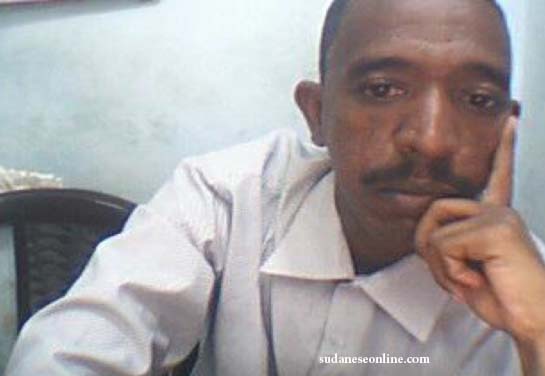| 03-12-2014, 02:09 PM |
Abdul-Aziz Ali Omer
 Abdul-Aziz Ali Omer Abdul-Aziz Ali Omer
Registered: 01-13-2014
Total Posts: 85
|
|
 Mbeki - bliss amidst the hell of earth. By: Abdul-Aziz Ali Omer Mbeki - bliss amidst the hell of earth. By: Abdul-Aziz Ali Omer
|
The sounds of bullets in our country, the Sudan must stop .That isnвҖҷt my cry; itвҖҷs the yell of a river called the Nile. It is the scream of a land one day extended back extended from Halfa to Nimule filled with sweet rains and children.
London, Copenhagen, Johannesburg, Nairobi, Kampala and other places should summon other cities where there are Sudanese fugitives to come to National debate.
Debate is the policy of no ego-centrism and voice of reason as tender as the voice of flute and rains of dawn. Nowadays, rains are followed with cool breezes, the breath of morning that is to coincide with hours of stifling heat in another sluggish day. вҖҳGet up, ezoo to say your prayerвҖқ, the voice of mother reverberates from another room. I switch on my mobile phone and into the Air pings a text reminder of an appointment with a friend in Cornithia Hotel in the Central of Khartoum. On the morning after my arrival, there was unusual bustle in waiting room. Subsequently, I scented in the calm atmosphere, the presence of Thabo Mbeki, the wise man of Africa auguring and mongering peace in Sudan. H.E president Thabo Mbeki, the chairperson of African Union High level Implementation Panel stayed briefly in the same hotel in the company of some Sudanese activists of Civil Society Groups. To my knowledge, he was there to give an impetus to a Sudanese debate at itвҖҷs infancy by deliberating on latent challenges and prospects of success. Among the out-standing participants in the short animated conversation, there was Professor Al-tayeb Zain AL-bdin representing Khartoum University.
I managed to meet Professor Al-tayeb Zain AL-bdin in h his office at the University of Khartoum. First, He related to me that he, on his part in meeting with H.E president Thabo Mbeki expressed the readiness of University of Khartoum to prop up any Conference of Comprehensive Dialogue. Then, he depicted it as an impartial and widely вҖ“accepted among the Sudanese community. Next, he enumerated itвҖҷs contributions such as the election bill-2007, Convention of Darfur Crisis-2008 and the plan of Public Consultation partially implemented between 2008-20011 in Blue Nile and South Kordofan Region.
In a comment on the Civil Society Groups representation at the negotiating вҖ“table, Mbeki Medani, his counter вҖ“part told H.E president Thabo Mbeki that it should be considerable. I asked why members of Civil Society seek a greater proportion of being represented, they were grappling with citizenвҖҷs issues and that put them in the pursuit line of security operatives. He said.
After having a cup of tea with Professor Al-tayeb Zain AL-bdin, we moved from the interior of his office to sit on a bench in the University campus where he told more about their discussions with Mr. Thabo Mbeki.
In a prelude to the up-coming dialogue, they advocated the involvement of warring factions in Darfur coupled with the mutual cessation of hostilities as a prerequisite for joint debate. Moreover, the participants appealed for the release of political detainees, lifting the ban on press and out-door political activities. Professor Al-tayeb Zain AL-bdin cited these demands in an article entitled вҖңObstacles of National DialogueвҖқ published in вҖңAl-taghyeerвҖқ Newspaper in issue No: 143 on 24thm February, 2014 describing as logical and reasonable. In his respective article, he mentioned that there would be no major imposed response because of the fragility of opposing coalition.
Our landscape is harsh and only negotiable by intervening rains. It is time to change the mud covered with grass and vegetation into a theatrette with fluttering doves. Nazar Ghabani, the poet of Arabic sentiment in the arms of rain in Beirut wrote: When we were siblings in itвҖҷs sea-like home, we came up into the Air holding in our fist the sun, fish and bread. Unquestionably, by our success in achieving peaceful dialogue, we shall be able to secure fish and ensure fish to our children and their grand-children.
|
|
   
|

|

|

|
|
|